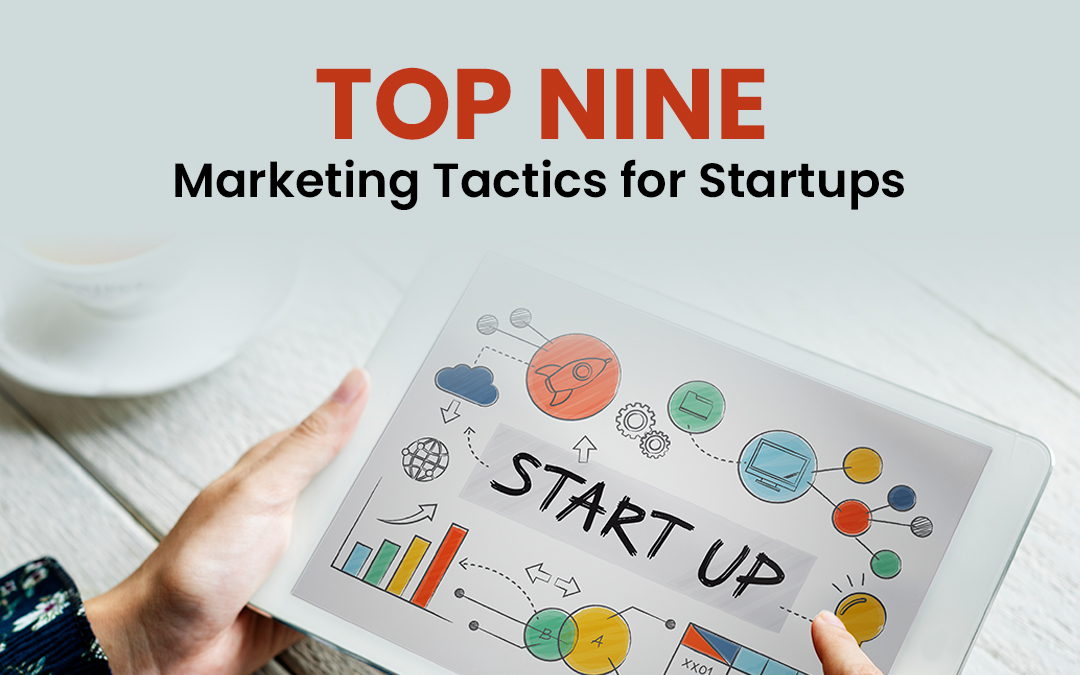
Marketing is vital for any business to thrive. For startups, it is even more crucial. New businesses face the challenge of gaining visibility and trust in a crowded market, but unlike established companies, startups often have limited resources. However, advancements in marketing techniques have leveled the playing field. Startups can now leverage digital tools and innovative strategies to compete effectively. Understanding how to create a robust marketing strategy is key. This article explores nine essential marketing tactics that startups can use to succeed.
1. Content Marketing
Content marketing involves creating valuable, relevant content to attract and engage a target audience. For startups, this means producing blog posts, articles, videos, infographics, and other content that addresses the needs and interests of their potential customers. High-quality content helps build authority and trust, positioning the startup as a thought leader in its industry.
One of the biggest advantages of content marketing is its cost-effectiveness. Unlike paid advertising, content marketing primarily requires time and creativity. By consistently publishing informative and engaging content, startups can attract organic traffic to their websites, generate leads, and nurture customer relationships.
2. Harnessing the Power of Social Media and Digital Marketing
Social media and digital marketing are indispensable for startups. Social media platforms like Facebook, Instagram, Twitter, and LinkedIn offer startups a cost-effective way to reach a large audience. By creating engaging content, startups can build a loyal following and increase brand awareness. Digital marketing, including SEO, email marketing, and online advertising, further amplifies these efforts.
For entrepreneurs with limited capital, pursuing an online social media marketing degree can be a smart move. This degree equips them with the skills to handle marketing in-house, saving money on hiring external experts. Understanding the nuances of social media algorithms, content creation, and digital advertising can give startups a competitive edge. Additionally, it enables them to quickly adapt to changing trends and customer preferences, ensuring sustained growth.
3. Search Engine Optimization (SEO)
SEO is the process of optimizing a website to rank higher in search engine results pages (SERPs). For startups, SEO is crucial for online visibility and attracting organic traffic. Basic SEO practices include keyword research, on-page optimization, and building high-quality backlinks. By targeting relevant keywords and creating content around them, startups can improve their search engine rankings and drive more traffic to their websites.
The long-term benefits of SEO make it an essential strategy for startups. Unlike paid advertising, which stops generating traffic once the budget is exhausted, SEO continues to drive organic traffic over time. Investing in SEO early on can help startups build a strong online presence, attract potential customers, and achieve sustainable growth.
4. Email Marketing
Email marketing remains one of the most effective marketing tactics for startups. Building a strong email list allows startups to communicate directly with their audience, share updates, promote products, and nurture leads.
To measure the success of email marketing, startups should track key metrics such as open rates, click-through rates, and conversion rates. Analyzing these metrics helps refine email campaigns and improve overall performance. Moreover, email marketing automation tools can streamline the process, allowing startups to send personalized emails at scale and maintain consistent communication with their audience.
5. Influencer Marketing
Influencer marketing involves partnering with influencers who have a large following in a specific niche. For startups, leveraging influencers can be a powerful way to promote their brand and reach a larger audience. By finding the right influencers who align with their brand values, startups can build authentic partnerships that resonate with their target audience.
Building relationships with influencers requires careful research and negotiation. Startups should look for influencers whose followers match their target demographic and who have a history of genuine or organic engagement. Collaborating with influencers can include sponsored posts, product reviews, giveaways, and more. Authentic partnerships with influencers help build credibility and trust, driving brand awareness and customer acquisition.

6. Paid Advertising
Paid advertising is a powerful tool for startups to gain immediate visibility and attract potential customers. It includes various forms, such as pay-per-click (PPC) ads, social media ads, and display advertising. For startups, budget-friendly options like Google Ads and Facebook Ads allow targeting specific demographics, interests, and behaviors, maximizing the return on investment.
One of the key advantages of paid advertising is its ability to generate quick results. Startups can set up campaigns with defined goals, such as increasing website traffic or boosting sales, and monitor performance in real-time. Optimizing ad performance involves analyzing metrics like click-through rates (CTR) and conversion rates. By continuously refining ad copy, targeting, and bidding strategies, startups can ensure their advertising budget is used effectively.
7. Public Relations (PR)
Public relations (PR) is a strategic communication process that helps startups build a positive image and establish credibility. Crafting compelling press releases and pitching them to media outlets can result in valuable coverage, increasing brand awareness and trust. Effective PR strategies involve storytelling that highlights the startup's unique value proposition and newsworthiness.
Building relationships with journalists and influencers in the industry is crucial for successful PR. Startups should focus on creating newsworthy stories, such as product launches, funding announcements, or significant milestones. Consistent PR efforts can lead to media coverage that enhances the startup's reputation and attracts potential customers and investors.
8. Customer Reviews and Testimonials
Customer reviews and testimonials play a vital role in building trust and credibility for startups. Encouraging satisfied customers to leave positive reviews on platforms like Google, Yelp, and social media can significantly impact the startup's reputation. Testimonials can be featured on the startup's website and marketing materials to showcase customer satisfaction and success stories.
Managing online reviews is also essential. Responding to feedback, both positive and negative, shows a commitment to customer service and can improve brand perception. Highlighting testimonials in marketing campaigns can provide social proof, making potential customers more likely to trust and engage with the startup. Building a strong base of positive reviews can lead to increased customer loyalty and referrals.
9. Analytics and Data-Driven Marketing
Analytics and data-driven marketing are critical for startups to measure the effectiveness of their strategies and make informed decisions. By tracking key performance indicators (KPIs) such as website traffic, conversion rates, and customer engagement, startups can gain valuable insights into what works and what doesn't. Tools like Google Analytics and marketing automation platforms help collect and analyze data.
Data-driven marketing involves using insights to refine and optimize marketing efforts. For example, if a particular social media campaign generates high engagement but low conversions, startups can adjust their approach to improve results. Regularly analyzing data allows startups to stay agile, adapt to market changes, and continuously improve their marketing strategies.
Embrace The New and Now in Marketing
Navigating the marketing landscape can be challenging for startups, but by employing a mix of traditional and innovative strategies, they can build a strong foundation for success. For startups willing to invest time and resources into these tactics, the potential for growth and success is immense. By staying adaptable and informed, startups can effectively compete in their markets and achieve their business goals.
Share this post
Leave a comment
All comments are moderated. Spammy and bot submitted comments are deleted. Please submit the comments that are helpful to others, and we'll approve your comments. A comment that includes outbound link will only be approved if the content is relevant to the topic, and has some value to our readers.

Comments (0)
No comment